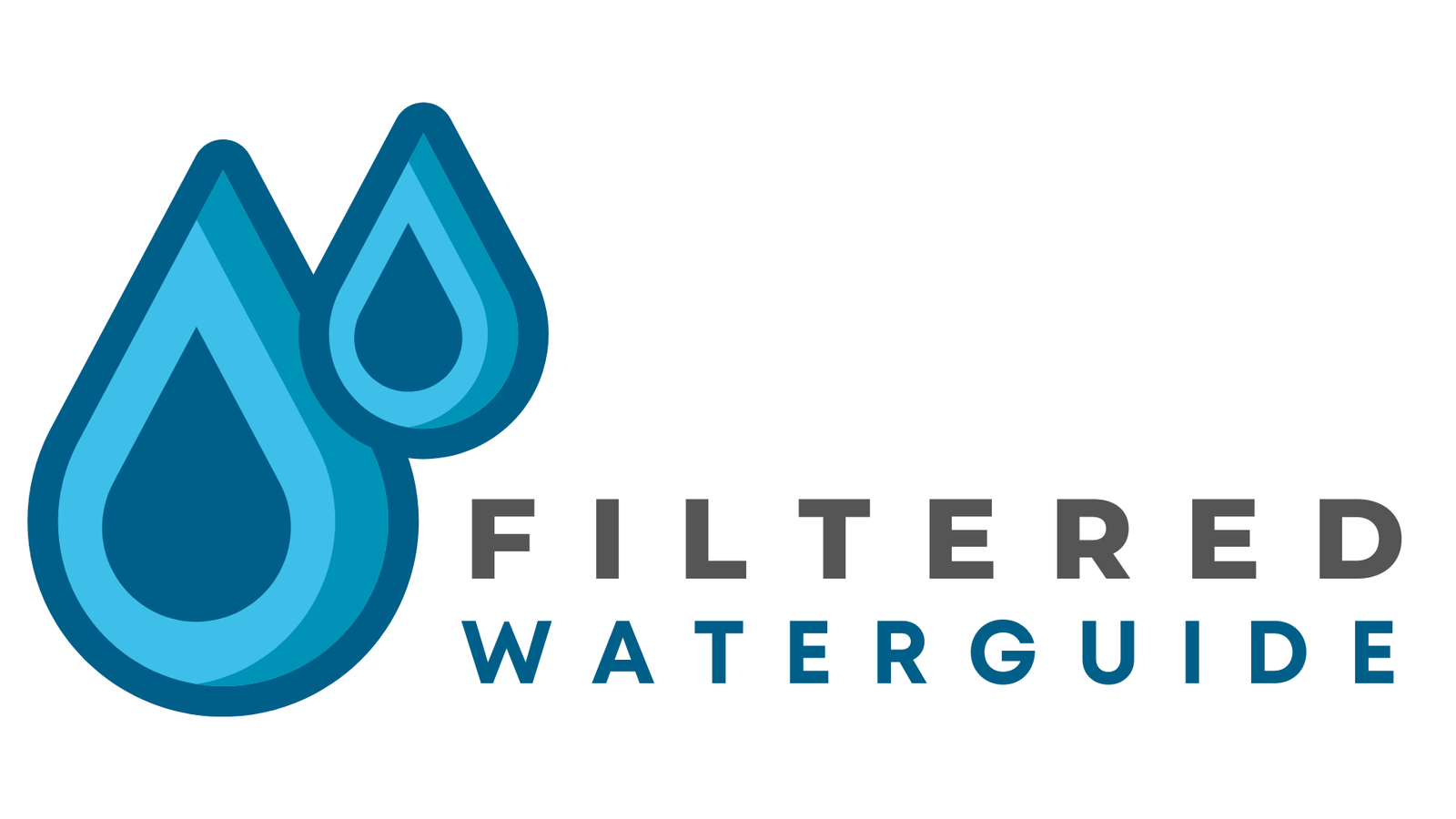Filteredwaterguide.com is supported by readers. If you purchase through referral links on our site, we make a commission at no extra cost to you. Learn more.
How to Test for Heavy Metals in Water
Of all of the different contaminants that are found in household drinking water, among the most concerning are heavy metals. That’s because they can have a significant impact on your health if you take them into your body in large enough quantities.
This means you have a right to be concerned with the presence of such heavy metals in your water as arsenic, lead, mercury, copper, and others.
You also have the right to do something about it if you find they exist in your drinking water in unacceptably high concentrations.
That’s what I am here to help you out with.

Table of Contents
I will inform you as to how heavy metals get into your drinking water, how to test for lead, arsenic, mercury, and other heavy metals in water, and how to get rid of them once you have determined they are present in worrisome amounts.
You will be surprised at the number of choices you have for removing heavy metals from the water that you and your family drink. I will even go over which water filtration systems do that best.
How Do Heavy Metals Get into Water?
The presence of lead, arsenic, mercury, copper, and other heavy metals in your drinking water should come as no surprise. That’s because they exist in both natural deposits in the earth and originate from man-made sources.
The difference between the two is that heavy metals that leach from natural deposits are very rarely found in levels that are considered harmful to human health.
Even when trace metals are leached out of soil and rocks by environmental conditions, it usually takes an assist from man, in the form of acid rain caused by pollution to do so.
As you can probably guess, the man-made presence of these toxic species of metals in water is usually the result of industrial and power generating processes.
These include emissions into the environment from coal plants & industrial waste incinerators, metal refineries, and through wastewater generated by mining and related processes.
Industrial runoff into natural waters is a main contributor of heavy metals in water along with older plumbing materials & pipe and paint that have elevated levels of heavy metals in them.
How Can You Tell if There is Heavy Metals in Your Water?
The problem with heavy metals, other than magnesium which may stain clothes or appliances a brownish-red color, their presence almost always shows no detectable signs.
They are odorless, colorless, and tasteless. This makes them one of the hardest impurities in water that are concerning to detect in a water source.
If your water supply comes from a local water company, you can always ask for a copy of the latest report on the condition of the water that comes into your home.
There is one problem with this though. It will not include any heavy metals that are sourced from your plumbing pipes becoming corroded.
Since you cannot taste, see, or smell lead or other metals in water, testing your home’s water is the best way to establish the presence of heavy metals in your water.
Should I Test My Water for Heavy Metals?
Whether you have a city or well water supply coming into your home you should always have it tested when you first move into it.
Testing your home’s drinking water initially with a quality test kit is a good way to determine if there is anything present in your drinking water such as heavy metals that you need to be concerned with.
This is especially true if you have a well because they are more prone to having heavy metals and other harmful impurities in the aquifers that supply water to them.
What are some of the health concerns that are associated with toxic metals?
Here are some of the most concerning common heavy metals commonly found in tap water and the health issues associated with them:
Chromium:
This is the harmful drinking water contaminant that was brought to the forefront by the movie ‘Erin Brockovich’. It’s not only a known carcinogen but also impacts the liver and kidneys and exposure to it is associated with circulatory problems and nervous system disorders.
Magnesium:
Although this is considered an essential nutrient, magnesium metal contaminants when too much are ingested are thought to cause nervous system problems.
Arsenic:
Arsenic is one of the most concerning of all toxic metals, you will understand why when you read the following list of health effects that are associated with it. Other health problems associated with exposure to arsenic include short-term effects such as skin discoloration, nausea, diarrhea, and vomiting.
Long term exposure to arsenic poses such potential health risks to the human body from it are diabetes and lung, liver, & heart damage. Arsenic poisoning can also lead to immune, nervous system, and reproductive system issues along with causing bladder, lung, skin, kidney, liver, and prostate cancer.
Lead:
Lead is easily one of the most publicized heavy metals of concern in drinking water. Chronic exposure to lead is known to be toxic to such areas of the body as your bones, brain, liver, and kidneys. Lead can also contribute to high blood pressure.
Health effects of lead poisoning have also been associated with behavioral (including aggressiveness and hyperactivity) and learning issues with young children. Another reason why the health risks associated with lead have been so mainstream.
Even low levels of lead in the environment pose health risks.
Copper:
Copper is another naturally occurring element that seems to have obvious signs of impacting children more because of their higher bodily absorption rate of substances.
In high amounts, Copper heavy metals pose risks to causing kidney and liver damage and lesser amounts are linked to stomach cramps, vomiting, and diarrhea. Copper contamination in water is even seen in developing countries.
Mercury:
This is another toxic metal that made headlines years ago because of the large amount of it that was found in tuna fish. High levels of mercury can cause nervousness, anxiety, mood changes, memory problems, body tremors, muscle weakness, breathing difficulty, and more.
How to Test for Heavy Metals in Your Water
The very best tests for heavy metals are atomic absorption spectrometry, Inductively coupled plasma mass spectrometry (ICP MS) analysis, and through the use of concentrated nitric acid, something that you and I do not usually have access to.
Of these ICP MS is the most accurate because ICP MS technology can detect metals found in the periodic table down to nanogram levels per liter.
That leaves two good ways for you to test for heavy metal contamination in your water. These are by using home test kits or having your drinking water tested by lab professionals.
Test Kits
When you use a test kit made for home water testing, it’s the only way to get fast results in a few minutes as to whether or not there are many heavy metals in your drinking water. Just make sure that you purchase one that detects heavy metals.
As far as a reliable home test kit for heavy metal detection goes, I recommend checking out one of our recommended kits here.
If your heavy metal analysis concludes they are present in your drinking water, I would also recommend following up home testing heavy metals with professional lab analyses.
That’s because many home test kits do not detect all of the heavy metals that you should be concerned about.
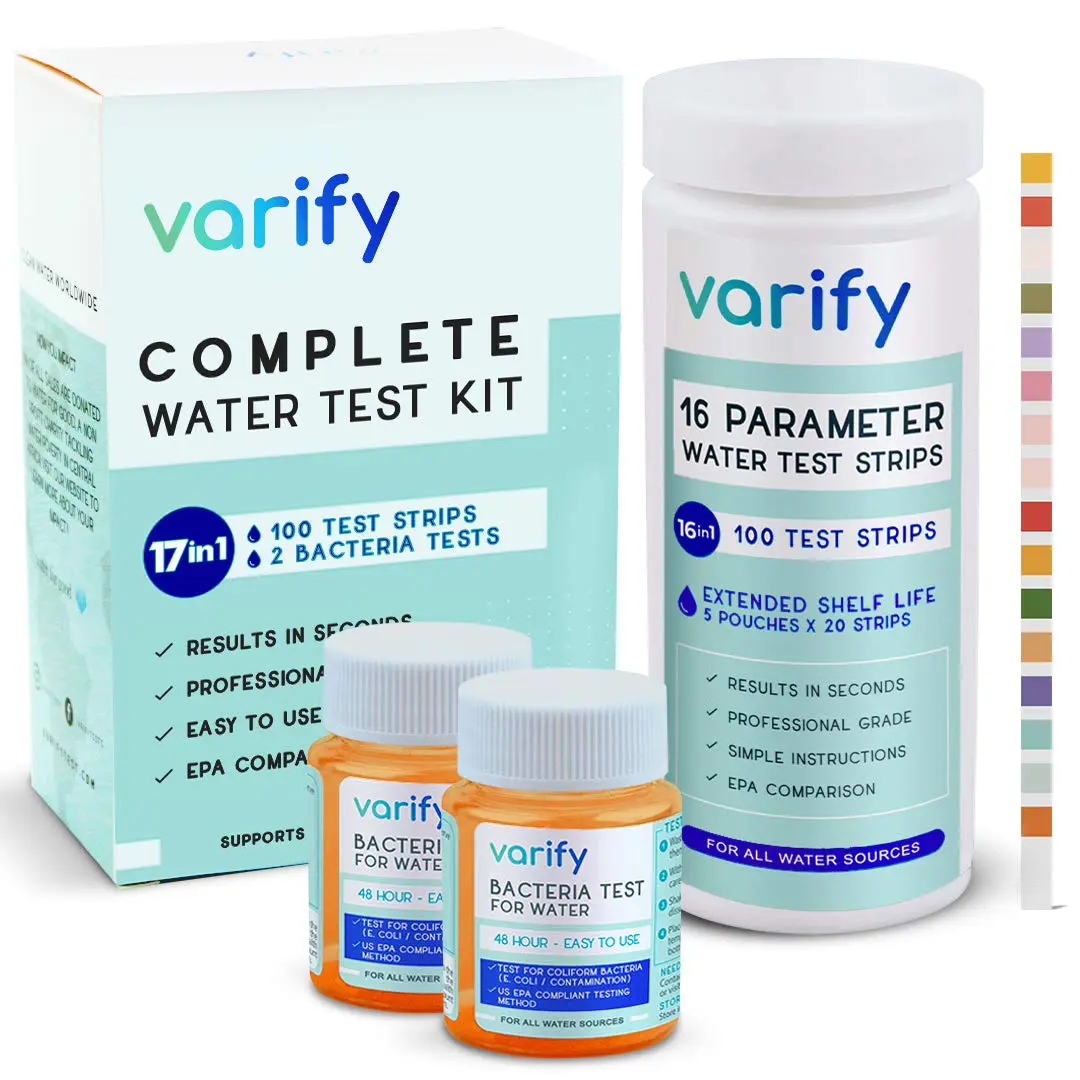
Lab Analysis
This is a much more accurate way of heavy metal testing as opposed to home test kits, to find out if and how much of any heavy metals are present in your drinking water.
You simply order a kit online and when it comes follow the instructions for taking water samples.
Once you have taken those samples, there is usually a prepaid envelope in the kit to put them in and send to the lab.
If you want to know the overall condition of your water’s purity including the presence of heavy metals, I would recommend using the Tap Score Advanced Well Water Test Kit.

For those that only want to know the concentration of heavy metals in their water, I would recommend the Safe Home Heavy Metals Test Kit.
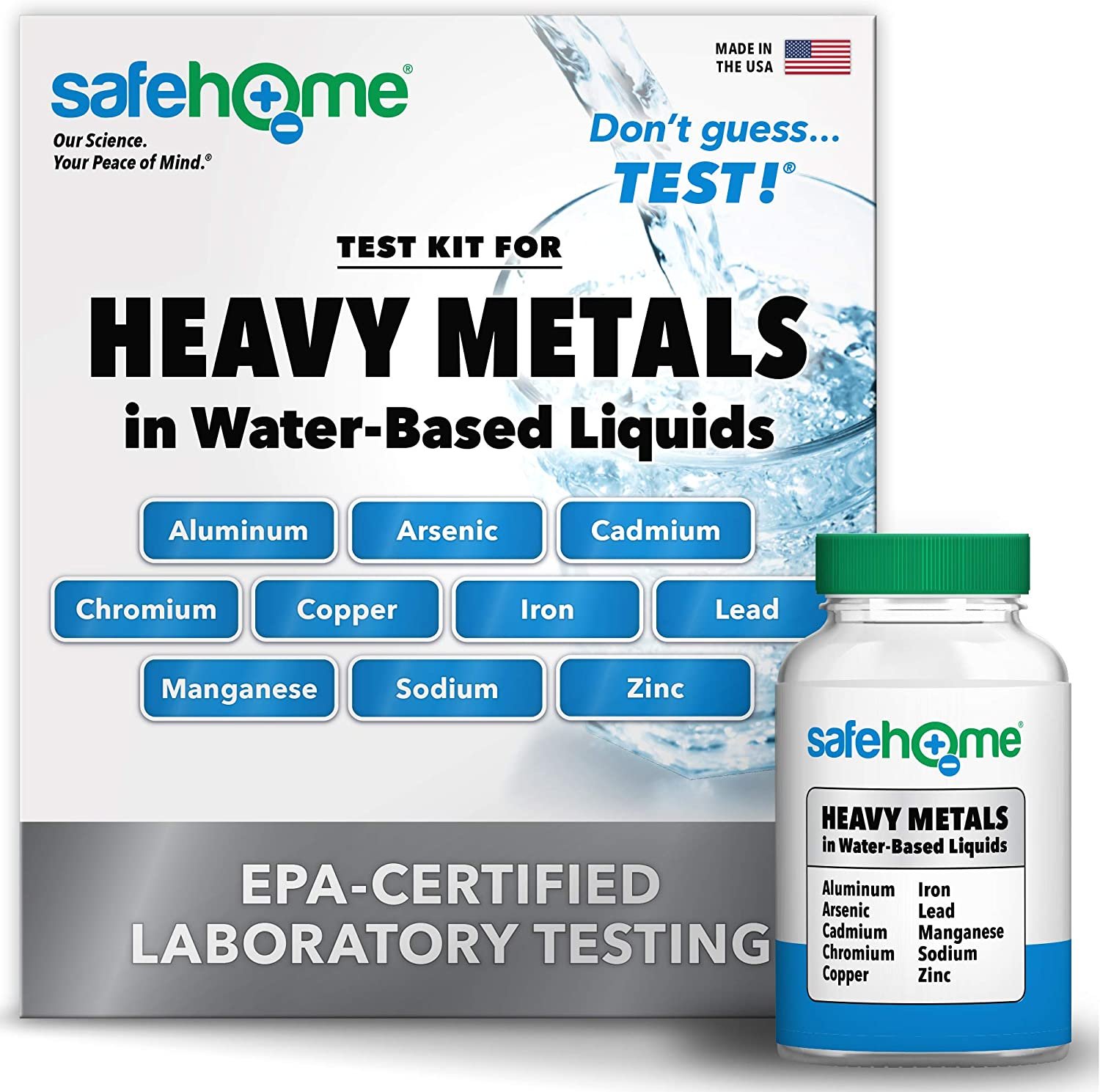
What Can I Do If My Water Tests Positive for Heavy Metals?
If you find that you have heavy metals present in your drinking water, there are three main ways that you can use to get rid of them They are as follows:
Reverse Osmosis (RO)
A good reverse osmosis filtration system would be my number one choice for heavy metal removal. That’s because they have a filtration stage that includes a special membrane that has many extremely small pores in it.
That makes them very good at not only removing most heavy metals but at removing or significantly reducing many other tap water impurities too.
In most cases, these will be point of use filters (POU) that are installed near your kitchen sink to purify the water that you drink and to use for cooking. You can expect much better water quality from these advanced filtration systems.
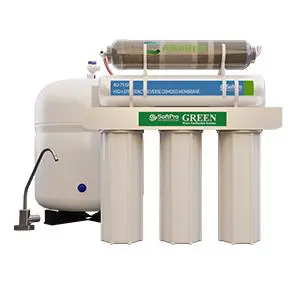
Carbon Block Filtration
This would be my second choice for removing heavy metals in water. Carbon block filters are not quite as efficient as RO filtration devices because their filter media’s pour size is not as small. So, when choosing one make sure that it does indeed remove heavy metals.
The benefits of using filtration systems with carbon block media are that they are usually reasonably priced and can be found in both POU and whole-home (point of entry) water filtration systems. Like RO filters, they will also remove many other drinking water contaminants.
Ion Exchange
Here is my last choice of the three for heavy metal removal. Don’t get me wrong, they do a good job of removing heavy metals from water. The reason they would be my last choice is they can be pricey and they don’t remove much more than heavy metals and a few other impurities.
These are sometimes used as stand-alone devices but work much better as a component of a whole-house water filter.
Testing Your Water for Heavy Metals is Always A Good Idea
As I mentioned before, I always recommend that you test your home’s water not only for the presence of heavy metals but any other harmful drinking water impurities that may impact you and your family’s health.
This will give you some great peace of mind once you have done it and then taken steps to eliminate the worrisome contaminants that were found in your drinking water.
Heavy metals are also nothing that you want to mess around with as far as you and your family’s health is concerned. So, if you have any heavy metals in high concentrations in your drinking water, be proactive and take steps to install a water treatment system that removes them.
Not only that, chances are the heavy metal filtration system that you install, will also help clean up other harmful impurities too and make your drinking water that much safer to drink.
